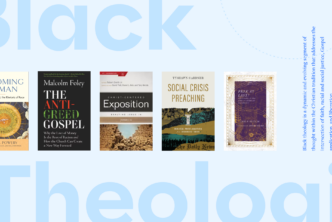A mother buries the child she loves. A hardworking husband loses his job. A family goes hungry. All of these scenarios beg the same question: If God is good, why do we suffer?
For some—including many Christians today—suffering is a sign of God’s absence or anger. For others, it is a sign of Satan’s attack. But what does the Bible reveal about suffering? And how did those in the early church interpret their suffering?
In PD201 Introducing Spiritual Formation, award-winning author and internationally-recognized speaker Dr. Gary Thomas (author of Sacred Marriage) teaches the biblical response to suffering and addresses why Christians are encouraged—surprisingly—to rejoice in suffering.
Looking four to five moves ahead
Rather than try to avoid suffering or pray it away, the Apostles Paul, James, and Peter all taught that we are to rejoice in the promise that God uses painful experiences to shape us in important ways. But this is a tough lesson.
Gary Thomas uses a helpful analogy of the famous hockey player Wayne Gretzky to explain why Scripture encourages us to rejoice in the face of trials. Gretzky was an exceptional hockey player because of his ability to always think four or five moves ahead. Gary Thomas says that we are also called to think ahead when it comes to suffering.
The Apostle Paul puts it this way: We rejoice in suffering, not because we take pleasure in suffering (Christians are not masochists) but because “we know that suffering produces perseverance; and perseverance [produces] character; and character, hope” (Romans 5:3–5). When we think several moves ahead, beyond our present suffering, we can live in hope—and hope is cause for rejoicing.
“This is what the early church believed,” Gary Thomas notes. “This is what the early church taught, and this is what God reveals to us through Scripture.”
Invest in spiritual formation
Gary Thomas has distilled a career’s worth of wisdom on the topics of marriage, parenting, and spiritual formation into a single course designed for Mobile Ed. Use PD201 Introducing Spiritual Formation for your own spiritual health, to benefit those in your small group, and to help your congregation grow in spiritual maturity.





